Page 463 • (5,687 results in 0.056 seconds)
-

cultures. It is one of the big reasons why she enjoys taking students to India as part of her J-Term course “Comparative Education in India.” Some of the students who took part in the J-Term course in the past years have become, or will someday, be teaching in the classroom. And every opportunity to be exposed to different cultural practices can help make students better teachers. “It changes their perception of the world,” she said. And that’s a good thing. As a teacher, she’s also the first to admit
-
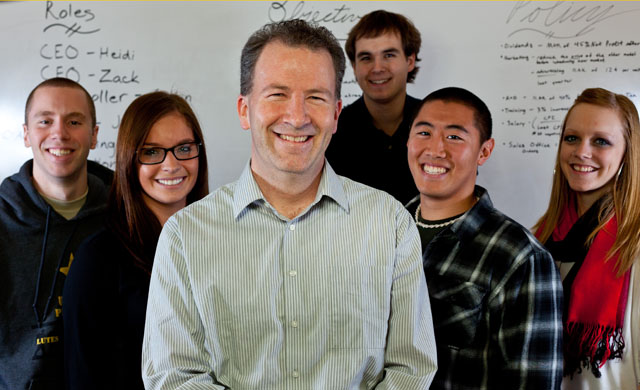
university where he would ultimately teach, his thought process was similar to that of a high school student looking for a college. (And considering he has a daughter in college now and a high school senior exploring all options, he has some recent experience.) Every university, after all, has its positives and negatives. Brown considered his options. “Do I want a larger school where there may be greater opportunities for research,” he asked. “Do I want a school where teaching is prized; where it is
-
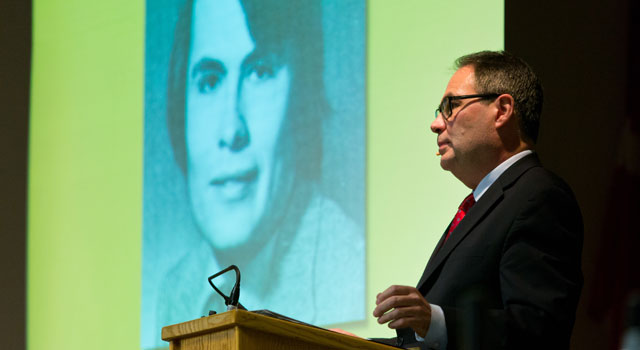
left his post as CEO of the United Way of New York City to assume a full time teaching position at New York University’s Robert F. Wagner Graduate School of Public Service. During a long career that includes senior positions in the Koch, Dinkins and Giuliani administrations in New York City, Campbell counts two turning points that changed his life. In the mid-1980s, Campbell was charged with developing a social service response to the AIDS crisis in the city, which at that time was one of the
-
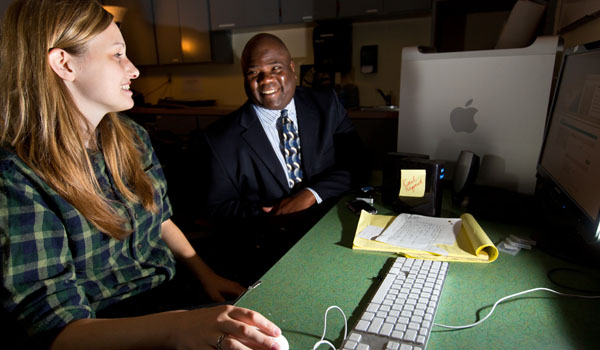
ravaged by tornados and oil spills, gone up the Alaskan Highway in search of unsung war heroes, and looked into weighty topics such as immigration, the changing American family and attitudes towards Islam in the United States. “I view teaching much like I view journalism,” Wells said. “It’s still an education process. And here, you give students a good start, and help them find their way. I think of the professors who encouraged me, and gave me a kick in the butt when I needed it.” Wells would like to
-

the panel. Some professors are also integrating the book into their curriculum. Lisa Marcus, associate professor of English, will again be teaching the book in her Writing 101 seminar on “Banned Books.” She wants students to recognize that Urrea’s book has been banned in Arizona as part of a push to suppress ethnic studies, particularly works that address Mexican-American history and experience. Marcus stresses that beyond the story and relatability of the characters, it is important to think
-

Award to expand Student Life’s PLUS 100: Transition to PLU program. PLUS 100 is an extended-orientation first-year seminar that has shown to increase graduation rates. Expansion of the program would include continuing to offer the program for all incoming first-year students and providing student teaching assistants for all sections. It would also involve investing in the professional development of instructors and TAs to emphasize the social justice outcomes associated with increased retention
-
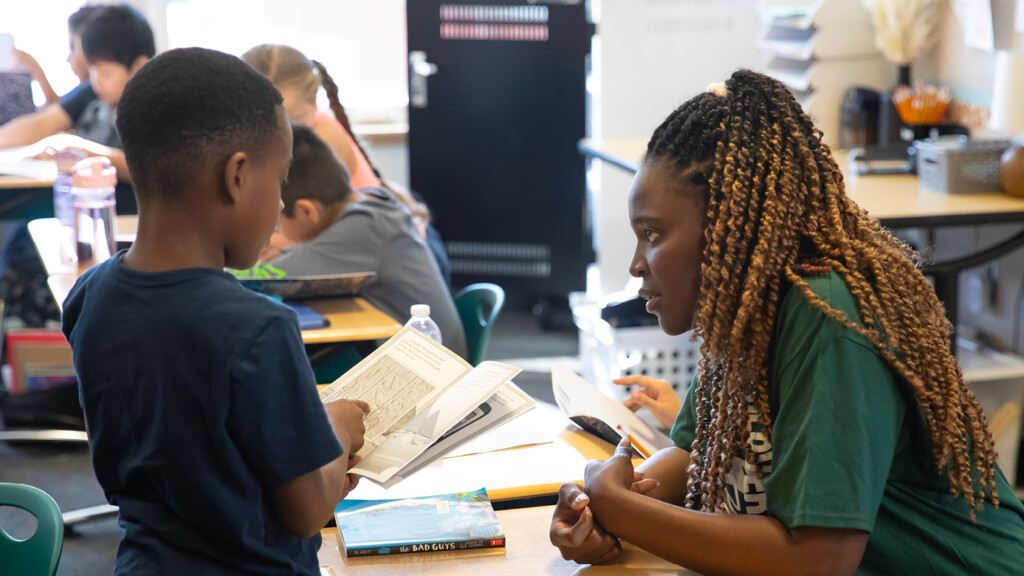
generosity of an anonymous donor deeply invested in PLU’s commitment to global education and international partnerships, Wells and her peers returned to Namibia as seasoned teachers, four of them national-board certified. Each teaching pair focused their dialogue on a pedagogical issue they faced—such as learner engagement, classroom management or social-emotional learning. But nothing can quite replace seeing these strategies in action, Wells said. When Eva Dumeni, a first-grader teacher at M. H. Greeff
-
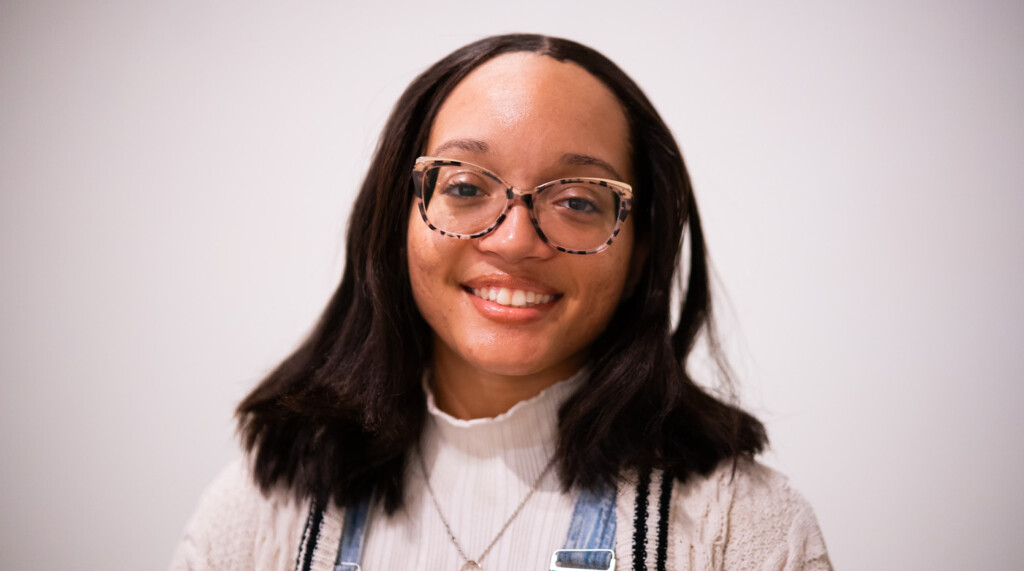
language: how teaching music in rural Namibia was a life-changing experience for Jessa Delos Reyes ’24 Read Next Cece Chan ’24 elevates the experience of Hmong Farmers and their rich history with Seattle’s Pike Place Market COMMENTS*Note: All comments are moderated If the comments don't appear for you, you might have ad blocker enabled or are currently browsing in a "private" window. LATEST POSTS PLU College of Liberal Studies welcomes Dean Stephanie Johnson July 24, 2024 Three students share how
-
require larger blocks of time should schedule these to cover no more than 2 normal class periods. 5. The onus of teaching courses in non-prime time slots should be distributed through the Department or School in an equitable manner. 6. While Department Chairs or School Deans are responsible for submitting their class schedule, oversight of the process should be provided by Deans and the Provost.J-Term Specific Guidelines1. Courses must be scheduled in the regular scheduling blocks. 2. Courses
-
Discovery Discovery https://www.plu.edu/resolute/spring-2016/wp-content/themes/blade/images/empty/thumbnail.jpg 150 150 Kari Plog '11 Kari Plog '11 https://www.plu.edu/resolute/spring-2016/wp-content/uploads/sites/14/2016/05/kari-plog-avatar.jpg April 21, 2014 April 20, 2018 Research GrantsLearn more. AccoladesLearn more. Lute LibraryLearn more. BlogsLearn more. Rick Barot says his work as a poet is a direct product of his time spent teaching at Pacific Lutheran University. And that work is
Do you have any feedback for us? If so, feel free to use our Feedback Form.


